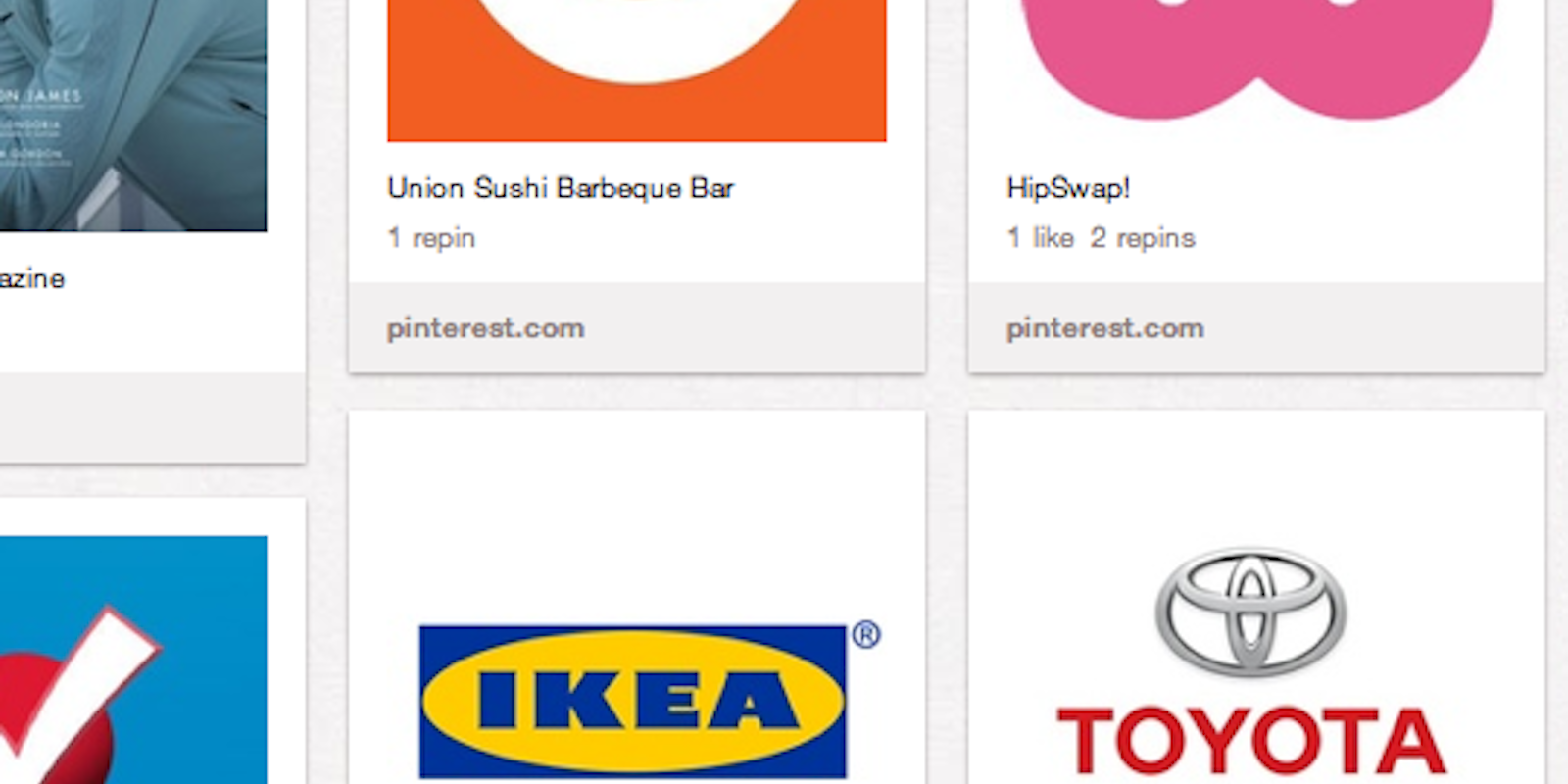Pinterest may be legally at fault when squatters sit on brands’ names, according to one attorney.
The burden of brand-squatting resolution currently lies with the trademark-infringed brand, a Pinterest spokesperson said. The social network has made a trademark complaint form available “for about a month” for companies to fill out in order to claim their usernames.
However, Curtis E. Smolar, an attorney at Fox Rothschild, said it’s too little too late. He believes that as long as Pinterest is aware of brand-squatting, the affected brands legally have the option to sue Pinterest for damages.
“The burden is on the owner of the web site who has actual knowledge of trademark infringement to stop it,” Smolar told the Daily Dot. “The idea that the burden can be shifted to the holder of the brand is contrary to the current state of the law.”
Smolar cited Microsoft v. Shah, a district court case resolved in 2010. Microsoft won the case since the defendant, Amish Shah, was aware that his website infringed on Microsoft’s trademark but didn’t do anything to stop it until Microsoft stepped in.
It’s no secret that hundreds of brands, including FedEx, Coke, and Microsoft itself, either cannot or have not claimed their trademark usernames on Pinterest. According to an estimate by Econsultancy, squatting affects 90 percent of the world’s brands.
According to Pinterest, brands have always had the option to contact Pinterest through its copyright@pinterest.com email address. But since copyright and trademark are two different things, it’s possible these brands got confused —like, 90 percent of them.
Pinterest made it clear that it is aware of this difficulty when it addressed an easier-to-use trademark complaint form in its Terms of Service update:
“We released simpler tools for anyone to report alleged copyright or trademark infringements,” the company wrote. A Pinterest spokesperson declined to comment further on the record.
“The trademark form is a red herring,” said Smolar. “The issue is whether the party had actual or constructive knowledge of the breach.”
Image via Kelly Lieberman


